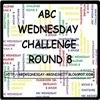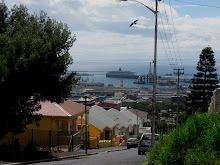 In 1716 Sheikh Noorul Mubeen was banished from Indonesia by the colonial Dutch government for being a trouble maker and sent to the Cape where he was imprisoned on Robben Island. He escaped and hid on Table Mountain near the present site of Oudekraal, which is on the coastal road between Camps Bay and Llandudno. When he died, he was buried here, and his burial place became a shrine or kramat for followers of the Islam faith. Eventually this building was built over the grave. Shaded by old gum trees, anyone can visit the kramat, which is just off Victoria Road and quite close to the smart Twelve Apostles Hotel but be aware that it is a holy place of quiet contemplation. There are other graves here too - one belonging to his wife or one of his followers, and the other to Sheikh Sayed Jaffer. I and many other Capetonians are extremely grateful for the presence of these graves because they have prevented greedy property developers from building inappropriate luxury houses and hotels here.
In 1716 Sheikh Noorul Mubeen was banished from Indonesia by the colonial Dutch government for being a trouble maker and sent to the Cape where he was imprisoned on Robben Island. He escaped and hid on Table Mountain near the present site of Oudekraal, which is on the coastal road between Camps Bay and Llandudno. When he died, he was buried here, and his burial place became a shrine or kramat for followers of the Islam faith. Eventually this building was built over the grave. Shaded by old gum trees, anyone can visit the kramat, which is just off Victoria Road and quite close to the smart Twelve Apostles Hotel but be aware that it is a holy place of quiet contemplation. There are other graves here too - one belonging to his wife or one of his followers, and the other to Sheikh Sayed Jaffer. I and many other Capetonians are extremely grateful for the presence of these graves because they have prevented greedy property developers from building inappropriate luxury houses and hotels here.  In front of the kramat building, enclosed by this rustic wooden fence, a spring of sweet, clear water wells up, and Muslims come from far and wide to collect its water. Springs are particularly significant in the Muslim faith as their holiest place is the Well of Zamzam in Mecca, Saudi Arabia where Abraham's son Ishmael, who was thirsty and crying for water, struck the soil and miraculously, water gushed out. Millions of pilgrims visit this well each year while performing the Hajj in order to drink its water.
In front of the kramat building, enclosed by this rustic wooden fence, a spring of sweet, clear water wells up, and Muslims come from far and wide to collect its water. Springs are particularly significant in the Muslim faith as their holiest place is the Well of Zamzam in Mecca, Saudi Arabia where Abraham's son Ishmael, who was thirsty and crying for water, struck the soil and miraculously, water gushed out. Millions of pilgrims visit this well each year while performing the Hajj in order to drink its water.See ABC Wednesday for more interpretations of the letter K.








 This little
This little  This old photo in the museum shows the Woodhead Reservoir under construction with the Black Watch Scottish regiment pipers at the laying of the foundation stone of the dam in 1894.
This old photo in the museum shows the Woodhead Reservoir under construction with the Black Watch Scottish regiment pipers at the laying of the foundation stone of the dam in 1894.






 Kapok clouds that kiss the mountain tops. Looking over the Cape Peninsula this morning from the top Top of Table Mountain - back to Cape Point. Kapok is a Malay word that describes the fine cotton-wool that surrounds the seeds of certain species of cotton and wild rosemary, which is used to stuff cushions and mattresses. Today is the first real day of rain we have had this autumn. I sense the fynbos starting to wake up from its summer sleep. For more Ks see
Kapok clouds that kiss the mountain tops. Looking over the Cape Peninsula this morning from the top Top of Table Mountain - back to Cape Point. Kapok is a Malay word that describes the fine cotton-wool that surrounds the seeds of certain species of cotton and wild rosemary, which is used to stuff cushions and mattresses. Today is the first real day of rain we have had this autumn. I sense the fynbos starting to wake up from its summer sleep. For more Ks see 









 Cape Town Time
Cape Town Time
































